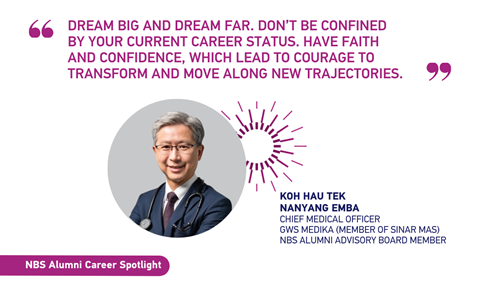Minor Issues: Skills, not clothes, make the man
The rise of tech popularised the concept of business casual, where suits and ties gave way to sneakers and hoodies
Clothes make a man. Dress for success. The client's first impression of you comes from what you have on.
These were a few choice lessons drilled into us young recruits at the Economic Development Board (EDB) in the late 1990s.
We were taught how to power dress, groom ourselves, give presentations and how to dine at official functions.
The guys were told to wear dark-coloured suits, light-coloured shirts and bright neck ties. Women were told to wear knee-length skirts, pale-coloured blouses and matching jackets.
Nothing was left to chance because we were emissaries for Singapore to foreign investors from around the world. Even the smallest details, like the type of scents we wore, were governed. We were advised against wearing certain perfumes and colognes because the scents might be too strong, and might leave a poor impression on what people thought of Singapore.
Besides dressing well during office hours, we were instructed to dress like we were going to meet the chief executive of our most important customer, during off-hours, even on weekends.
The EDB instructions represented a radical change to the way I dressed, as I was more of a shorts and T-shirt kind of guy. It never sat well with me, but nevertheless, I conformed.
I secretly cheered the dot-com boom and the rise of the tech industry not just because of the disruption of industry structures and business models, but more importantly, because tech disrupted how business executives dressed to conduct business.
The rise of tech popularised the concept of business casual. Suits and ties gave way to sneakers and hoodies. Apple co-founder Steve Jobs with his turtlenecks, Microsoft co-founder Bill Gates with his matching track shoes and jeans. How these tech titans dressed resonated with me. Often, they looked like they had just rolled out of bed - unkempt, filthy rich and changing the world.
Years after my struggle with how to dress in the world of work, the issue has surfaced once again - in my household.
My younger son, S, who is 16, proudly proclaimed one evening that he has a deep mistrust for anyone who dictates what people wear in different social settings.
The conversation revolved around his impending internship at a local artificial intelligence start-up, and he was teased by the family about his perpetually uncombed hair and grubby T-shirts paired with worn-out gym pants.
His point is that in high-performing tech companies, the focus is on substance over form. It is not how a person dresses that matters, but what that person can do behind a laptop. He followed up by saying that no matter how well dressed you are, if your code does not work, you still suck.
We immediately reminded him that how a person dresses for an important job interview might make the difference in him getting the job or not. S said if he had to dress up for a job interview, that is not a company he would want to work for.
Actually, we do not believe in power dressing in the Ang household.
While basic cleanliness and personal hygiene is a must, hair length and what clothing the boys wear have been left to them since they were young. A case in point is that my elder boy, R, 19, has had shoulder-length hair for the last three years - much to his grandmother's indignation.
Instead of how the boys dress, the focus in our family is on the skills that they possess and can demonstrate proficiency in.
Our boys were among the earliest users of online coding platform Code Academy, shortly after it was founded in 2011. There, they learnt the basics of Python programming, Java and website coding. They later moved on to other online learning platforms like Coursera and Udemy. For learning visual skills and musical skills, they have found YouTube to be a wonderful resource.
Sunday is Learning Day in our household, even during the school holidays. It usually takes the kids a few hours to finish their homework, after which they are free to explore acquiring new skills or applying the skills they have to their own projects.
These projects often extend beyond the digital world. We have several musical instruments at home for the boys to practise on, but as parents, we have made it a point never to nag them to do so.
The boys have commandeered a part of our Housing Board flat for space to undertake and store their half-done construction projects and tools. While some people call it a maker space, we call it a dump.
We discourage them from over-specialising in any single area, or learning a skill just because it is "popular". We prefer that they pick things they are passionate about and try as wide a range of skills as possible.
Since the boys were young, we have stressed to them how important it is to learn how to learn. We remind them that disruption is everywhere, and the skills they may be proficient in today may well be overtaken and disrupted by newer skills and technologies in the future.
They are reminded that completing a course does not mean that proficiency in a skill has been acquired. Head knowledge is far less valuable than demonstrable skills. A simple analogy is how food from a hawker who has spent thousands of hours behind the stove will always be superior to that of a home cook who has watched a few YouTube videos and claims mastery of the same dish.
I was encouraged to read a recent CNA interview with Mr Benny Se Teo, founder of restaurant chain Eighteen Chefs, about how he does not judge a book by its cover when it comes to hiring former offenders. He said that from his experience, he has found that how a person is dressed for an interview does not indicate how he will perform at work.
While the interview does not cover how Mr Se Teo selects his chefs, I strongly suspect that it boils down to their work ethic and demonstrable cooking skills.
Over the years, especially after I left EDB, I have gone back to wearing shorts and T-shirts in my personal time and cannot remember the last time I power dressed for any occasion.
Afterall, for me, it's skills that make a man (or woman), not the clothes one has on.
The writer is chief executive of a medical technology company and an adjunct associate professor at Nanyang Business School.
Source: The Straits Times





.tmb-listing.png?Culture=en&sfvrsn=64dc3641_1)
